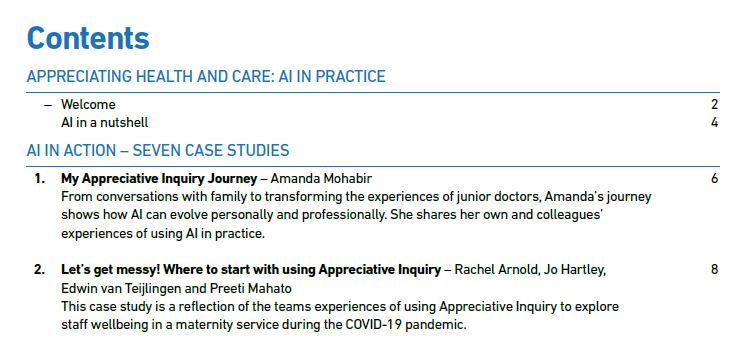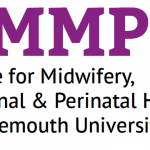 In March of this year I had the pleasure of announcing in a BU Research Blog the publication of Dr. Rachel Arnold’s contribution to the book Appreciating Health and Care: A Practical Appreciative Inquiry Resource for the Health & Social Care Sector [1]. There is also a supplementary eBook, called Appreciating Health and Care: AI in practice [2], which introduces more professional experiences of using AI (not Artificial Intelligence, but Appreciative Inquiry) in the health and care sector. Rachel is the lead author of the contribution ‘Let’s get messy! Where to start with using Appreciative Inquiry’ and her co-authors are Dr. Jo Hartley, Prof. Edwin van Teijlingen and Dr. Preeti Mahato. ‘Let’s get messy! Where to start with using Appreciative Inquiry’ is a case study which reflects on our experiences of using Appreciative Inquiry to explore staff well-being in an NHS maternity service during the COVID-19 pandemic. We explain how we adapted and overcame some of the challenges, strategies that worked, and practical ideas for anyone interested in using Appreciative Inquiry in health or social care.
In March of this year I had the pleasure of announcing in a BU Research Blog the publication of Dr. Rachel Arnold’s contribution to the book Appreciating Health and Care: A Practical Appreciative Inquiry Resource for the Health & Social Care Sector [1]. There is also a supplementary eBook, called Appreciating Health and Care: AI in practice [2], which introduces more professional experiences of using AI (not Artificial Intelligence, but Appreciative Inquiry) in the health and care sector. Rachel is the lead author of the contribution ‘Let’s get messy! Where to start with using Appreciative Inquiry’ and her co-authors are Dr. Jo Hartley, Prof. Edwin van Teijlingen and Dr. Preeti Mahato. ‘Let’s get messy! Where to start with using Appreciative Inquiry’ is a case study which reflects on our experiences of using Appreciative Inquiry to explore staff well-being in an NHS maternity service during the COVID-19 pandemic. We explain how we adapted and overcame some of the challenges, strategies that worked, and practical ideas for anyone interested in using Appreciative Inquiry in health or social care. 
References:
- Hodgkiss, D., Quinney, S., Slack, T., Barnett, K., Howells, B. (2024a) Appreciating Health and Care: A practical Appreciative Inquiry resource for the Health and Social Care sector, Forres: Appreciating People; ISBN: 978-1-9160267-6-6
- Hodgkiss, D., Quinney, S., Slack, T., Barnett, K., Howells, B. (2024b) Appreciating Health and Care: AI in practice, Forres: Appreciating People.
 Appreciative Inquiry Resource
Appreciative Inquiry Resource Congratulations to Dr. Rachel Arnold on her latest paper
Congratulations to Dr. Rachel Arnold on her latest paper










 From Sustainable Research to Sustainable Research Lives: Reflections from the SPROUT Network Event
From Sustainable Research to Sustainable Research Lives: Reflections from the SPROUT Network Event REF Code of Practice consultation is open!
REF Code of Practice consultation is open! BU Leads AI-Driven Work Package in EU Horizon SUSHEAS Project
BU Leads AI-Driven Work Package in EU Horizon SUSHEAS Project ECR Funding Open Call: Research Culture & Community Grant – Apply now
ECR Funding Open Call: Research Culture & Community Grant – Apply now ECR Funding Open Call: Research Culture & Community Grant – Application Deadline Friday 12 December
ECR Funding Open Call: Research Culture & Community Grant – Application Deadline Friday 12 December MSCA Postdoctoral Fellowships 2025 Call
MSCA Postdoctoral Fellowships 2025 Call ERC Advanced Grant 2025 Webinar
ERC Advanced Grant 2025 Webinar Update on UKRO services
Update on UKRO services European research project exploring use of ‘virtual twins’ to better manage metabolic associated fatty liver disease
European research project exploring use of ‘virtual twins’ to better manage metabolic associated fatty liver disease